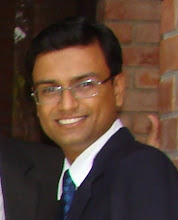Blame it on the non stop viewing of 'World at War' series, so beautifully narrated by Sir Laurence Olivier. The question which has been troubling me for the last two weeks is this : "What are the circumstances which allow a person to look the other way while a fellow human being is being killed/maimed/attacked?"
Another factor which lead to this entry was the brilliant opening sequence of Tarantino's latest movie, 'Inglorious Basterds'. I would not spoil the scene for those who have already seen the movie but those who have seen the movie would get the point.
The final push to write this entry came after reading this impartial account, by Ivan Buruma, of life in Paris during the German occupation. In the article, he presents before us two journals maintained by two Parisians during the years of German occupation. One of them is a young author who is merely inconvenienced by the presence of Germans in Paris. The other is a young Jew student who lives under constant threat of deportation and gas chambers. Just like their backgrounds, their fate is also going to be different. He also looks at the response of different members of artistic community. Some choose the path of collaborations while others actively resist the occupation.
Is being apolitical an excuse which can be used to ignore the brutalities? If resistance is futile and doomed to fail, should a man close his eyes to the horrible realities in front of him and continue his normal life seeing nothing and doing nothing?
Edmund Burke once said, "All that is necessary for the triumph of evil is that good men do nothing." But why is it that so often good men choose to do nothing. A psychology experiment conducted by Stanley Milgram could be a good starting point to look at the motives of ordinary people who do evil things. He found out that a large percentage of people would go to any lengths to conform. Also, another psychology experiment by Darley and Latane examines bystander apathy. We have all seen cases of bystander apathy but in an extreme case of bystander apathy, a New York woman named Kitty Genovese was raped, stabbed and killed in front of an apartment block while during a period of two hours, nearly 30 people witnessed the assault but none of them came out to help Kitty Genovese. This lead to the aforementioned study by Darley and Latane which, unfortunately, confirmed what we all know deep inside our hearts. People do not help people. And, more the number of people who are witness to an assault or an accident, the slower the response time would be because everybody would be waiting for somebody else to come to the help of the victim.
So, are we lead to the unhappy conclusion that people are generally bad or at the very best, they are not good?
Derisking the public funding of innovation
2 days ago




